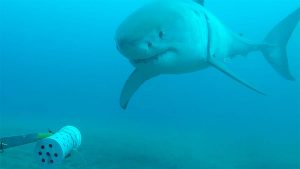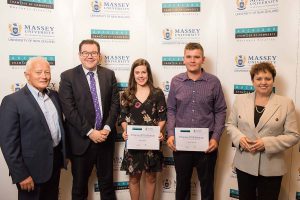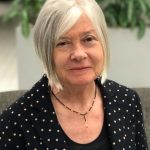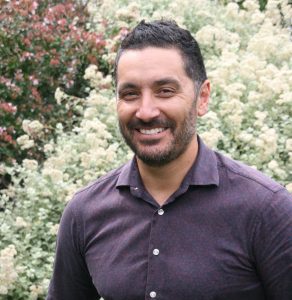Massey scientists captured some astonishing footage of a great white shark on a research expedition to the Southwest Pacific.
The three-to four-metre-long male shark was caught on film in Rangitāhua (Kermadec Islands), which lies 1000 kilometres northeast of the North Island of New Zealand. It was filmed in October using a baited remote underwater video set (BRUV), which is an arrangement of two video cameras and a canister of bait attached to a steel frame, which is deployed on the sea floor for 60-90 minutes as a means of surveying marine life.
Massey scientist Dr Adam Smith led the BRUV project, along with postgraduate student Odette Howarth, marine technician Emma Betty, and shark scientist Clinton Duffy.
Dr Smith, from the Institute of Natural and Mathematical Sciences, says the encounter left the team “buzzing”.
“The shark calmly circled the bait for a few minutes before approaching the gear and giving it a few ‘curiosity bites’. It then effortlessly picked up the entire BRUV set, swam with it up to the surface, and then dropped it back to the sea floor. It did this a total of three times, before losing interest and swimming off.”
The project aims to quantify patterns in fish biodiversity across the Southwest Pacific, by reference to particular habitats and environmental conditions, and human impacts. They also hope to gain a better understanding New Zealand’s marine ecosystems in a regional context, and plans to do similar surveys in the Hauraki Gulf region in the coming months.

The male shark as caught on film in the Kermadec Islands.



